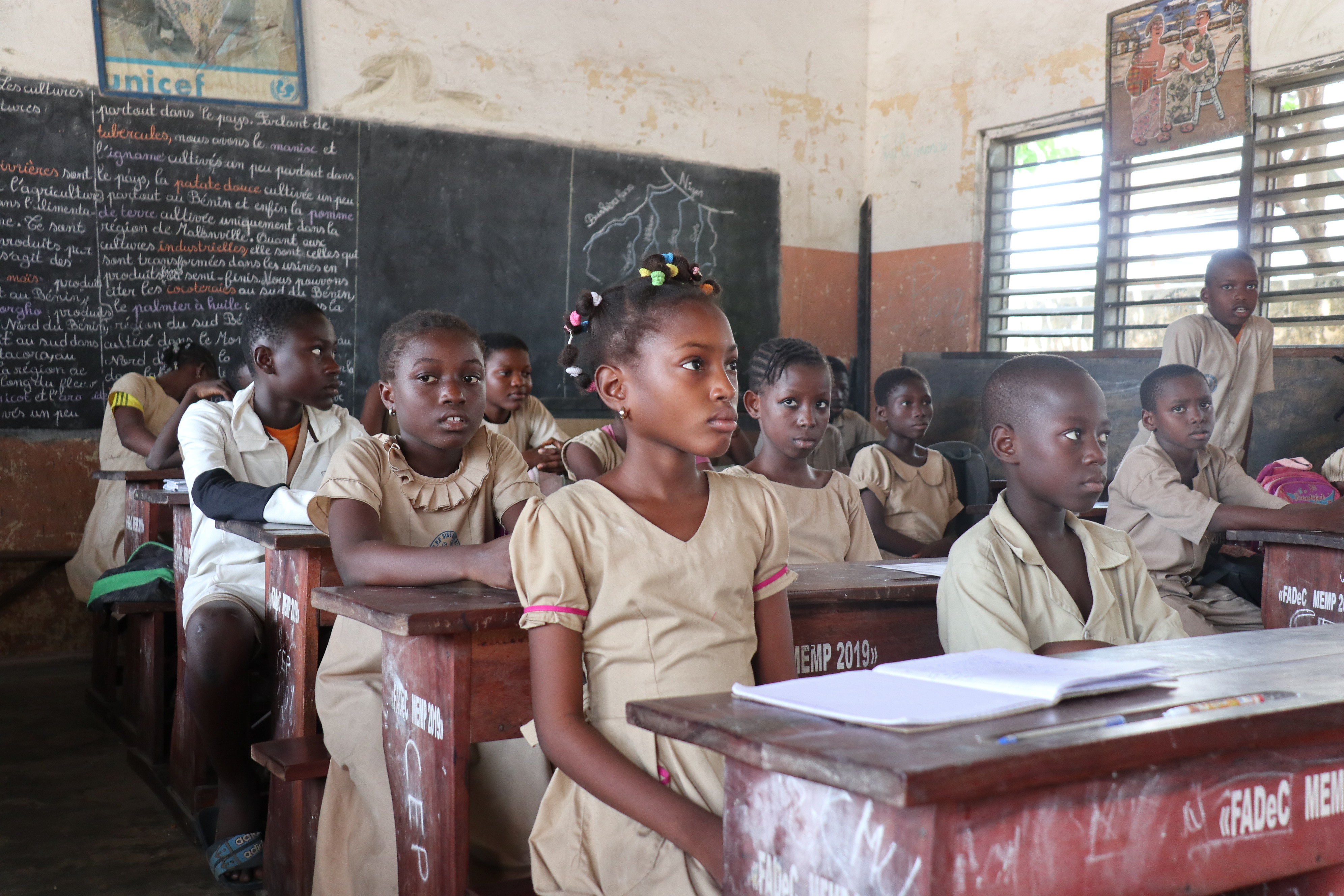Rape, kidnapping, physical violence, forced marriages... these are just a few examples of the many deprivations and violations of children's rights to which young girls are subjected around the world. And their situation continues to worsen, particularly in crisis situations. On 11 October, International Girls' Rights Day, Action Education is sounding the alarm and reminding us of the urgent need to guarantee access to quality education for all. This year, the association is joining forces with Plan Internationale and co-signed a Tribune calling on governments to guarantee access to quality education for all.
In Afghanistan, young girls can no longer move around freely and are deprived of an education from the age of 12. In Ukraine, thousands of girls have suffered sexual and gender-based violence during conflicts. In Burkina Faso, thousands of girls are kidnapped, forcibly married or used as slaves by extremist groups. In Sudan, they are exposed to the worst forms of violence, exploitation and sexual abuse, while access to aid and essential services is extremely limited. In many countries, including the most developed, their sexual and reproductive rights are limited and controlled. In France, 130,000 women have suffered rape or attempted rape. And these are just a few examples of the persecution, stigmatisation and violations of children's rights to which young girls are subjected throughout the world, particularly in situations of political, economic, security or even climatic crisis.
-
1 girl is married every 2 seconds worldwide, i.e. 12 million girls are victims of forced marriages every year
-
1 in 5 girls give birth to their first child before the age of 18
-
Only 1 in 4 girls goes to school in the least developed countries
-
1 in 10 girls aged between 15 and 49 is now a victim of violence sexual and physical.
Fundamental rights violated and flouted with virtual impunity
Behind this increase in violations of young girls' rights lies the inexorable rise in poverty. To date, more than 938 million girls and women live on less than USD 3.20 a day. At the current rate, if nothing changes, the number of women living in extreme poverty in Sub-Saharan Africa, one of the poorest regions in the world, will be higher in 2030 than it is today. This is due to the increasing number of political, security and climatic crises, as well as the rising cost of raw materials, energy and food, which have forced many underprivileged families to take their daughters out of school, limit their care, reduce their food intake, or even put them to work or marry them off in the hope of having one less mouth to feed. But it's also due to the low regard in which these young girls are held. In too many countries, they are still too often discredited, seen as inferior, useless, uninteresting, and in fact excluded from all decisions, including those that concern them closely, and reduced to silence.
Education as a vehicle for progress and gender equality
For millions of young girls around the world, the loss of their fundamental rights is by no means inevitable. Progress, some of it significant, had been made in previous decades without really overturning the established order. All it took was a succession of crises to wipe out the advances made in favour of gender equality and allow patriarchy to brutally re-impose its authority and its very Manichean vision of the world. However, governments, especially those that have been working for years to promote gender equality, know very well how to ensure that girls' fundamental rights are respected: guaranteeing 12 years of free, quality education for all, especially the most vulnerable girls. For Action Education, only access to quality education will enable young girls to to acquire the skills and attitudes that are essential to their lives as adults and citizens, to develop a critical mind, to be aware of their rights and to have the confidence to defend them. What's more, it will enable them to occupy positions of power and decision-making, enabling them to overturn the balance of power that has prevailed in our societies for centuries and become agents of change. This is why, on the occasion of International Girls' Rights Day, Action Education co-signs the Plan International Tribune to call on governments to finally put their words into action and adopt policies and laws that protect girls' rights and guarantee their access to education and autonomy.
To go further:






